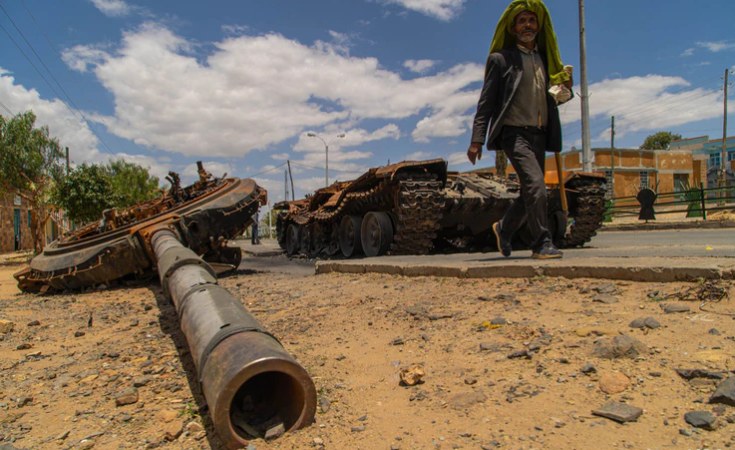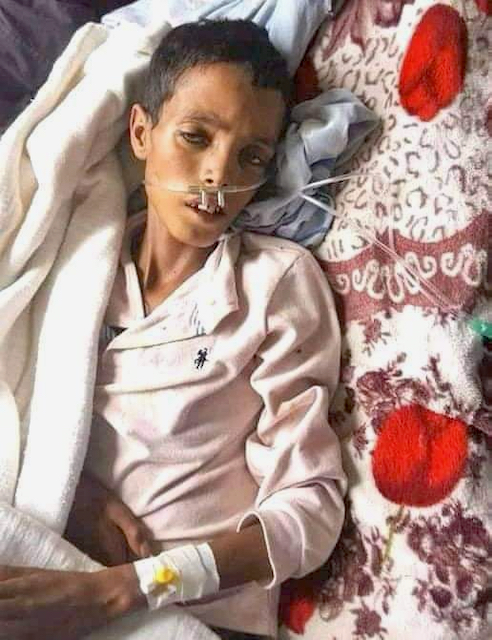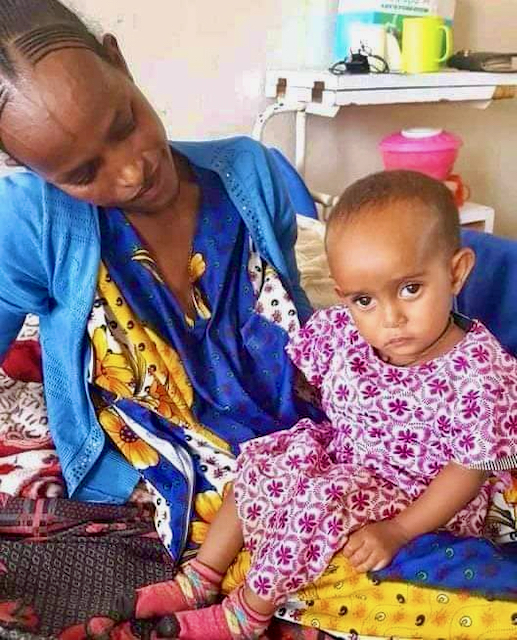Source: International Crisis Group

William Davison Senior Analyst, Ethiopia wdavison10
What’s at stake in Ethiopia’s elections?
Ethiopia is due to hold delayed federal and regional council elections on 21 June. The vote is an opportunity for Prime Minister Abiy Ahmed to consolidate power for his ruling Prosperity Party, which, in part due to the absence of major opponents, looks set to form the next government. It will do little, however, to resolve the fundamental political divisions over the best way to steer the country’s troubled transition under Abiy, particularly as the most influential supporters of stronger regional autonomy – notably in Tigray and Oromia regions – will not take part. These constituencies will doubtless see the vote’s outcome as illegitimate. Polls originally set for August 2020 were postponed that March by the electoral board due to COVID-19, contributing to a constitutional dispute and the subsequent outbreak of war between the federal and Tigray regional governments. The authorities also arrested senior ruling-party opponents in Oromia and elsewhere in July 2020 amid deadly unrest. This led to boycotts by the two major Oromia-focused opposition parties and thus a far less competitive electoral landscape in Ethiopia’s most populous region. There will be no vote in around one fifth of federal constituencies due mainly to insecurity.
While the government is pushing ahead regardless, there will be no vote in around one fifth of federal constituencies due mainly to insecurity. No ballots will be cast in Tigray, due to a cruel conflict that has raged for more than seven months between the federal military alongside Eritrean troops and Amhara regional forces, on one side, and fighters loyal to the ousted Tigrayan regional leadership, on the other. Insurgencies in the Sudan-bordering region of Benishangul-Gumuz, home of the Grand Ethiopian Renaissance Dam, and in the west of Oromia, have led the electoral board to postpone voting in some districts there. Finally, no election will take place in the easterly Somali and Harari regions, due in part to ballot-printing problems. The board announced on 10 June that these last polls, along with some others that are postponed – though not those in Tigray – will be held on 6 September.
Although Abiy’s government hopes to come out of the election with a popular mandate, international observers have already criticised aspects of the process. U.S. observers from the National Democratic Institute and International Republican Institute reported significant difficulties, including the widespread insecurity, boycotts by several popular parties, and delays in candidate and voter registration procedures. The European Union announced on 3 May it will not send observers, saying the government had not met conditions necessary to ensure the independence of the mission and its communications systems. With final results due within a month of the vote, the logistical problems that have beset preparations suggest that there could well be numerous issues with balloting and counting.
How do Ethiopia’s electoral and security crises relate to each other?
The election will play out in the shadow of the devastating war between federal authorities and ousted regional leaders from the Tigray People’s Liberation Front (TPLF), who are key proponents of the existing ethnic federalist system. The system, which the TPLF was instrumental in designing, promotes the self-rule rights of Ethiopia’s diverse collection of communities, but critics see it as hardening ethnic identity and weakening national unity. The TPLF was the pre-eminent party in an alliance that held power for nearly three decades until Abiy’s ascent to the premiership in April 2018.
An electoral dispute triggered the Tigray conflict, yet serious tensions had been brewing since Abiy stripped the TPLF of most of its federal power after taking office. When, in June 2020, the federal government delayed national polls until nine to twelve months after it had assessed that the pandemic was under control, the Tigray regional government broke with central authorities and ran its own vote for the region’s legislature on 9 September, saying the government’s term could not extend past its five-year mandate. Federal authorities subsequently deemed the new regional leadership illegitimate. On 3 November, Tigray’s government forcibly took over a national military command stationed in the region, saying it acted due to an imminent federal operation to kick the TPLF administration out of office.
Amid a federal blockade on Tigray, the national armed forces and its allies removed Tigray’s leadership from power on 28 November and set up an interim administration. But the ousted TPLF leaders are leading an insurgency from rural areas that commands considerable backing among Tigrayans. Pro-rebel sentiments have been fuelled by reports of atrocities, especially by Eritrean forces, and the Amhara region’s decision to forcibly claim chunks of Tigray. The UN estimates that one million people are living in areas where the rebel Tigray Defence Forces are operating, with hundreds of thousands of those civilians on the brink of starvation. A key objective of the resistance is to restore the TPLF, now branded as a terrorist organisation by the federal parliament, to government. There is no end in sight to the war, either on the battlefield or through negotiations, given that the resistance is entrenched while Abiy refuses to talk to the ousted Tigrayan leadership and no alternative to those figures has emerged. Conflict in Oromia, a region of around 40 million people, has also been fuelled by tensions between the incumbent and supporters of Ethiopia’s ethnic federalist system.
Conflict in Oromia, a region of around 40 million people, has also been fuelled by tensions between the incumbent and supporters of Ethiopia’s ethnic federalist system. Prior to the pandemic, elections for Oromia’s governing council and the 178 federal parliament seats in the region were set to be competitive, with popular opposition leaders and parties due to mount serious challenges to the Prosperity Party. Oromo nationalist forces gained a significant boost after activist Jawar Mohammed – a driving force of the protest movement that catalysed Abiy’s own rise to power in 2018 – joined the opposition Oromo Federalist Congress (OFC) in December 2019, the same month the Prosperity Party was created. The OFC allied within days with the Oromo Liberation Front (OLF), a formerly banned movement – the leaders re-entered the country as part of an amnesty Abiy accelerated after taking office – revered by many Oromo nationalists, creating a potent opposition force.
Then came the 29 June 2020 murder of popular Oromo singer Hachalu Hundessa, which upended the country’s politics. His killing triggered deadly unrest in Oromia and the regional and national capital Addis Ababa, which prompted federal authorities to crack down on Oromo activists. Amid the chaos, Jawar and other top opposition leaders were arrested and are now on trial for crimes including terrorism. The two main Oromo opposition groups, the OFC and OLF, say the authorities also detained their members en masse and closed party offices, repressing their activities. As a result, they have boycotted the election. The Oromo Liberation Army (OLA), an OLF offshoot, says it is at “total war” with authorities as part of its struggle for Oromia’s complete self-determination. The movement, which the national parliament also branded a terrorist organisation on 6 May, says it aims to prevent voting in Oromia.
Unrest in the central region could increase after new federal and regional governments take power, as the OLA and its supporters will doubtless view the incoming authorities as illegitimate. While it is hard to authoritatively assess the OLA’s capabilities, the insurgency has spread from western and southern Oromia strongholds in recent months, including a reported deadly 10 June ambush on security forces in a district around 300km to the west of Addis Ababa.
In addition, chronic serious intercommunal and insurgent-government violence is afflicting Benishangul-Gumuz, interrupting election plans in two of the region’s three main administrative zones. Ethnic militias from the Gumuz community – a group that was among those historically subject to slave raids by more powerful Ethiopian ethnicities and whose activists say the community is still downtrodden – have mobilised in numbers and operate mostly in the remote, heavily forested Metekel Zone. They have killed ethnic Amhara, Shinasha and Oromo people, whom the Gumuz rebels perceive as settlers, and also recently briefly took over one district in the region’s Kamashi Zone.
Who will be the main challengers to the Prosperity Party?
The party fielding the most candidates is Abiy’s Prosperity Party, which was formed in December 2019 by merging all eight regional ruling parties other than the TPLF, which refused to join, claiming that Prosperity’s unitary structure undermines regional autonomy.
The Prosperity Party’s main national competitor is the Ethiopian Citizens for Social Justice Party, or Ezema. It differs from Prosperity in being a staunch advocate for the overhaul of the ethnic federalist system. Ezema is in effect the successor to an opposition coalition that made gains in Ethiopia’s most competitive election in 2005. After disputes over results and a deadly government crackdown that year, Ezema leader Berhanu Nega and allies were jailed. Some of them later launched a mostly ineffective insurgency from Eritrea and the U.S., before returning as part of Abiy’s 2018 opening that also involved a mass amnesty for jailed political activists.
The Prosperity Party and Ezema are especially looking to win control of the council governing Addis Ababa, the country’s economic and political powerhouse. There, the two parties will face off against each other and another competitor, Balderas for True Democracy, which says it stands for the autonomy and civil rights of Addis Ababa’s multi-ethnic citizens against what it says are attempts by Oromo nationalists to increase that group’s socio-cultural influence and political control in the city.
Could electoral competition translate into violence?
Electoral competition could set off violence, as the status of the Oromia and federal capital has long been a flashpoint, particularly between the Amhara and Oromo. The city is home to residents with ties to Ethiopia’s many ethno-linguistic groups, but it is encircled by Oromia. Oromo nationalists say the city was built on Oromo land in the late 19th century. They want a greater say in running it, a demand partly based on the 1995 federal constitution granting Oromia region an undefined “special interest” in Addis Ababa. A 2014 government development plan for the capital and surrounding areas of Oromia touched off protests across the region, with protesters asserting that the initiative would result in more unfair evictions of Oromo farmers. The city’s growth in preceding years had already pushed many off their land. The underlying dispute could exacerbate power-sharing tensions in Addis Ababa between the Oromia and Amhara branches of the Prosperity Party. If defeated, as looks almost certain, Oromo nationalists may object to losing control of the capital.
In the meantime, Balderas leader Eskinder Nega is also standing trial for terrorism crimes. A recent Supreme Court ruling ordered the electoral board to list him on the ballot, despite the ongoing court case. His travails have agitated his supporters, including ethnic Amharas in Addis Ababa, and the National Movement of Amhara, an Amhara opposition party that is a partner of Balderas and has a mostly urban support base. In April, the Movement supported demonstrations in Amhara, accusing Abiy’s government of failing to prevent the killing of Amhara civilians by, allegedly, the OLA and Gumuz militiamen, including in March and April around an Oromo administrative enclave in Amhara. Disputed results in the region, Ethiopia’s second most populous, could also contribute to further unrest there.
What is the way forward to return the country to peaceful politics?
The grave problems with the elections demonstrate that – more than ever –Ethiopia needs an inclusive process of political reconciliation. The authorities say they are already holding a “national dialogue” among groups and citizens, but with so many disgruntled opposition elements, this initiative is unlikely to calm the waters. A recent statement on the campaign trail by the prime minister vowing to “destroy” what he calls the country’s internal enemies also undermines efforts to narrow divisions. Unless his government takes a more conciliatory, comprehensive approach to negotiations, instability may well spike further, and it will be increasingly difficult for the government to carry out economic or political reforms, including, potentially, to the constitution. Furthermore, serious factionalism within the ruling party, notably between its Amhara and Oromia branches, could well be exacerbated by a post-election government’s attempt to reconfigure the federal system, particularly if that is conducted without sufficient consultation. The federal government should pursue a political settlement for the horrific, seemingly unwinnable war in Tigray
Whatever the election results, the federal government should pursue a political settlement for the horrific, seemingly unwinnable war in Tigray and conflicts in Oromia and elsewhere. Most urgently, that requires a cessation of hostilities in Tigray in order for relief to reach the millions of people in the region who desperately need it as famine conditions worsen. Large-scale preventable deaths in Tigray would likely irreparably isolate Abiy’s government internationally and make the region’s conflict even more entrenched and harder to resolve politically. Furthermore, unless Abiy’s government can get a handle on the many domestic crises it faces, it will struggle to tamp down tensions away from home, not least in its growing confrontations with Egypt and Sudan over the Grand Ethiopian Renaissance Dam, with Sudan over disputed borderlands and with international partners over its handling of the war in its stricken northernmost region.
An end to the Tigray war would only be a start, however. Reconciling the contradictory visions for such a complex country requires addressing the competing demands of various parties and reaching a compromise between supporters and opponents of its ethnic federalist system through an inclusive process involving all key political actors. If, as appears likely, the Prosperity Party wins a majority, Abiy should use his new mandate as an opportunity to reach out to even his most hardline opponents. If that does not happen, the country may very well suffer increasing political violence and the government and its leader may face growing international isolation.


































